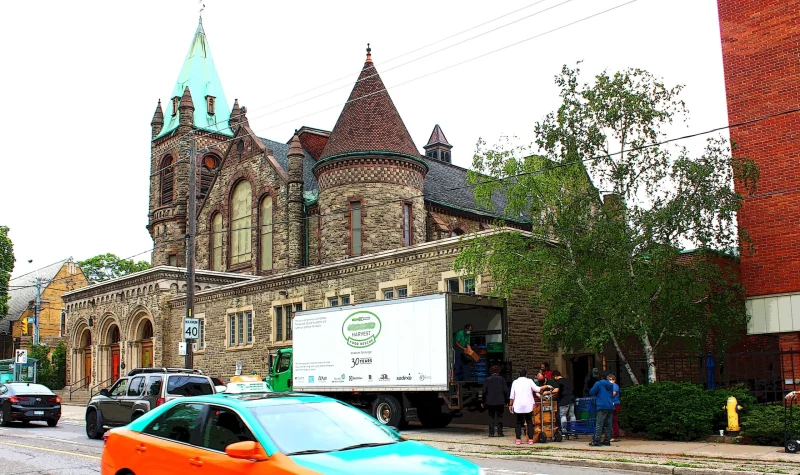Toronto food banks continue to see a surge in visits this fall with more than 4,000 visits recorded in September, according to the Allan Gardens Food Bank.
As the city slowly recovers from the height of COVID-19, the rise of inflation, the increasing cost of living for rent and food have led to a record number of food bank visits in 2022.
The food bank said demand for food in the downtown core has increased by more than 60 per cent this year compared to 2021.
Food bank Director Peter Uytenbogaart said along with the lack of affordability in the downtown core, the pandemic continues to have its effects.
"The pandemic had an impact on people's work lives and some people were laid off without incomes," he said. "A large number of people we serve are working poor - their income just does not the support the requirements of a family of two, let alone four."
Further, Uytenbogaart said several refugees from Ukraine and Latin and Central America have also contributed to the increased number of visits.
In his years working as director, he said the "core group of people" being served are those who are on the financial assistance program, Ontario Works(OW), and those relying on the Ontario Disability Program Benefit (ODSP).
"The funds they are receiving in this social security plan is far and away inadequate for the needs of the people," said Uytenbogaart.
"For ODSP, 75 per cent of their benefit will go to rent, leaving the rest for TTC (Toronto Transit Commission) and groceries."
To help support the food bank as demand and visits increase, Uytenbogaart said any donation is helpful. At the moment, other common non-grocery items like tooth brushes, santiary napkins and diapers are most in need.
The Allan Gardens Food Bank operates from St. Luke's United Church at 353 Sherbourne. St.
The food bank receives its food donations from the Daily Bread food bank and Second Harvest.
More information on the food bank's mission and operations can be found here.
Listen to Paul Uytenbogaart's full interview:


